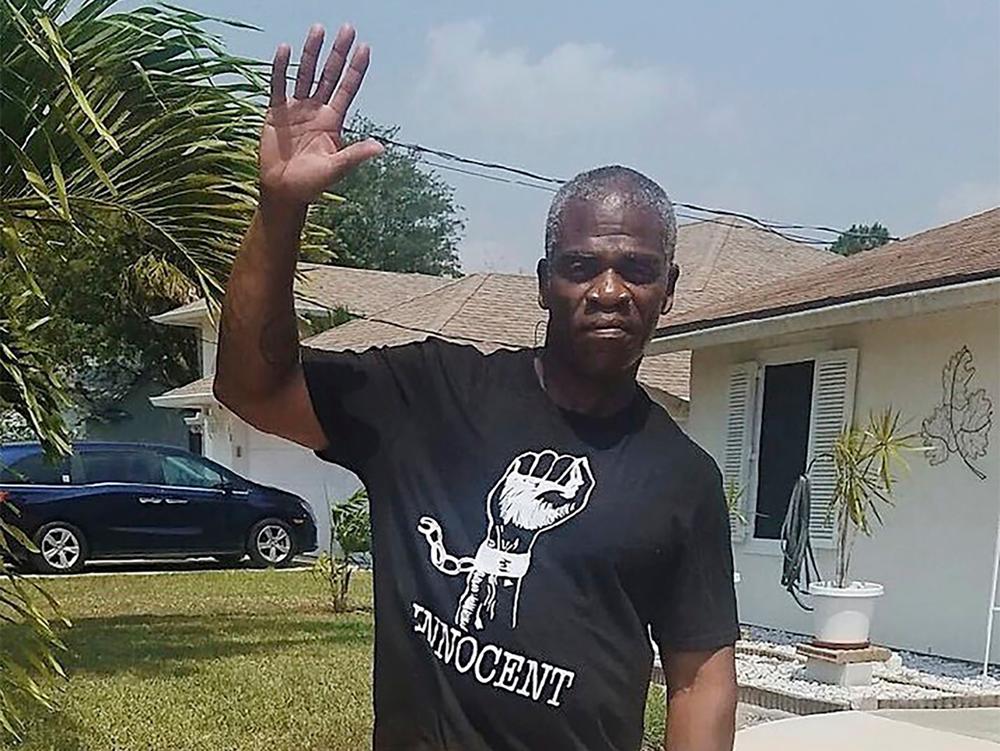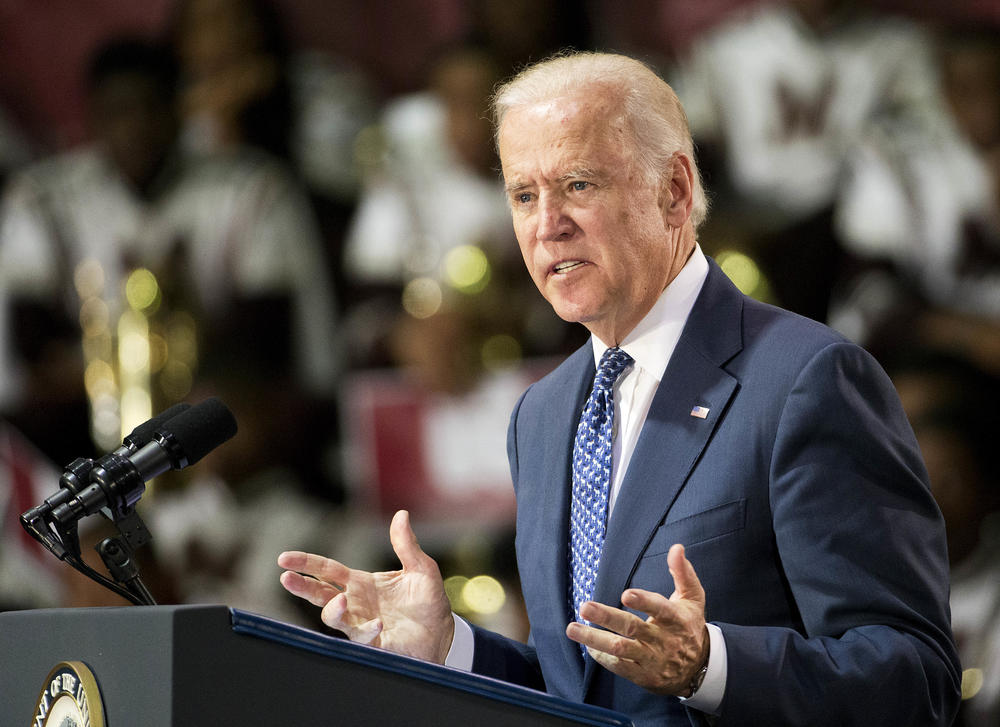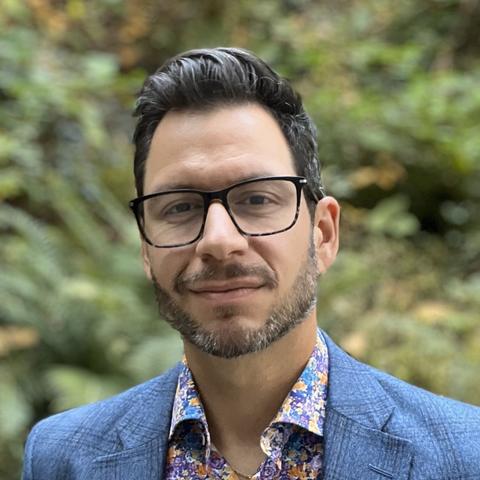
Section Branding
Header Content
Georgia Today: UGA murder case special prosecutor; Cyberbullying bill; Can Biden shut down border?
Primary Content
LISTEN: On the Tuesday, Feb. 27 edition of Georgia Today: A special prosecutor is appointed to handle the murder case in last week's killing on the University of Georgia campus; the state Senate passes a bill aimed at protecting teens from cyberbullying; and Republicans are calling on President Biden to unilaterally shut down the border. But can he do that? We'll talk to a constitutional scholar.

Peter Biello: Welcome to the Georgia Today podcast from GPB News. Today's Tuesday, Feb. 27. I'm Peter Biello. On today's episode, a special prosecutor is appointed to handle the murder case in last week's killing on the University of Georgia campus. The state Senate passes a bill aimed at protecting teens from cyberbullying, and Republicans are calling on President Biden to unilaterally shut down the border. But can he do that? We'll talk to a constitutional scholar. These stories and more are coming up on this edition of Georgia Today.
Story 1:
Peter Biello: The district attorney for Athens-Clarke County is bringing in a special prosecutor to handle the murder case against a man accused in last week's killing on the University of Georgia campus. DA Deborah Gonzales said yesterday, Sheila Ross of the Prosecuting Attorneys Council of Georgia will lead the case. Ross has served as a prosecutor in Atlanta, San Francisco and Jacksonville, including in several high-profile cases. Jose Ibarra has been charged in the murder of 22-year-old nursing student Laken Riley. Gonzalez's critics, including some top Georgia Republicans, say her office is unable to handle the case because of multiple problems in her office. The DA says, quote, "we will not allow this or any other case to be used for political gain."

Story 2:
Peter Biello: The state Senate overwhelmingly passed legislation yesterday aimed at protecting teenagers from cyberbullying and other negative effects of social media. GPB's Sarah Kallis reports.
Sarah Kallis: The Senate passed a bill that would require social media companies to get parental consent for users under age 16. It would also force schools to have a social media policy and safe social media education, as well as restrict access on school devices. Sen. Jason Anavitarte sponsored the legislation. He says it's time for an update to school social media policies.
Jason Anavitarte: People would be surprised; like, we're kind of behind the times with a lot of our social media policy and state policy as it relates to these kinds of things in a school setting. I was actually surprised that — I mean, some things haven't been updated in over a decade.
Sarah Kallis: The bill passed the Senate 51 to 1 and now moves to the House. For GPB News, I'm Sarah Kallis at the state Capitol.
Story 3:
Peter Biello: A gas station that has been the site of multiple shootings near Georgia State University in downtown Atlanta in recent years, is closing permanently. GSU President Brian Blake said in a statement to the university community yesterday that the CEO of Atlanta-based RaceTrac announced the closure. It came after the two met to discuss a shooting that happened over the weekend. A 21-year-old man was fatally shot Sunday. GSU officials say he was not a student.
Story 4:
Peter Biello: Georgia has the highest percentage of deadly crashes involving a police chase. That's according to federal highway safety data analyzed by Nevada law firm H&P Law. A little more than 2% of the state's fatal wrecks involve a police chase. Chris Harvey of the Georgia Peace Officer Standards and Training Council, says his agency is beefing up training for high-speed chases.
Chris Harvey: Ultimately, it's a decision that an officer is going to have to make given the totality of the circumstances. It's probably going to be a little bit different if you're talking about a back road in South Georgia at 2:00 in the morning, or if you're talking about four in the afternoon on Peachtree Street in downtown Atlanta.
Peter Biello: A report issued last year by a national think tank on policing standards, the Police Executive Research Forum, calls for officers to not initiate a pursuit unless a violent crime has been committed and the suspect poses an imminent threat. In January, a state trooper died in metro Atlanta's Gwinnett County while attempting to arrest a fleeing motorcyclist on traffic charges.
Story 5:
Peter Biello: Authorities in Southwest Georgia are searching for a second man who went missing after being seen near the Flint River waterfront in Albany. Witnesses told Albany police they saw 23-year-old Cameron Jones enter the river on Monday, about a block away from where, two weeks earlier, a city employee, 36-year-old Darius Stevens, was last seen collecting water samples. Multiple agencies are involved in the search for both men using boats, underwater dive teams and drones in the air.

Story 6:
Peter Biello: Civil rights attorneys filed a federal lawsuit today in South Georgia alleging excessive and unlawful use of force in the police killing of Leonard Cure. GPB's Benjamin Payne reports.
Benjamin Payne: Cure was a wrongfully convicted Black man from metro Atlanta who was released from a Florida prison in 2020. Last October, he was shot and killed by Camden County Sheriff's Deputy Buck Aldridge during a traffic stop. Aldridge is now being sued by Cure's family, who claim the deputy initiated unlawful force and caused the wrongful death of the 53-year-old. Cure's brother, Michael Cure, spoke outside the Brunswick Federal courthouse.
Michael Cure: My brother did 17 years for a crime he did not commit. He was 100% exonerated, only to be out three years and have an encounter with this racist, incompetent officer who took his life unnecessarily. Where's the justice?
Benjamin Payne: The $17 million lawsuit also names Camden County Sheriff Jim Proctor as a defendant for allegedly hiring Aldridge despite knowing he had a history of using excessive force. Neither defendant could be reached for comment. For GPB News, I'm Benjamin Payne.
Story 7:
Peter Biello: A ransomware hacking group once again is threatening Fulton County. County officials say the group LockBit has reestablished its site and again listed the county as a target. The group claimed responsibility for a January attack that crippled county offices. County officials say they still don't know what data might be compromised.
Story 8:
Peter Biello: Alaska Airlines is expanding its routes from Atlanta's Hartsfield Jackson International Airport. The company recently announced a daily Atlanta to Portland route beginning in October. The Seattle-based airline already flies daily between ATL and Seattle, and in September, the company announced a daily Atlanta to San Diego flight beginning in May. The move has put Alaska Airlines deeper into competition with Atlanta-based giant Delta Air Lines.
Story 9:
Peter Biello: An Atlanta-based nonprofit supporting Black entrepreneurs, is getting a $1 million grant from Comcast-NBC Universal. The Russell Innovation Center for entrepreneurs says the grant will support initiatives including digital resources and a monthly speaker series. It's the latest large grant to the 6-year-old organization following commitments by Disney, Wells Fargo and Bank of America.

Story 10:
Peter Biello: Republicans in Georgia are demanding that President Biden take action after a man who entered the country illegally was arrested in the killing of a woman on the University of Georgia, Athens campus last week. But what does the president have the power to do with respect to the border without Congress's approval? For more on this, we turn to legal analyst Ronald Chapman. Ronald, thank you very much for speaking with me.
Ronald Chapman: Thank you very much for having me.
Peter Biello: Some Republicans have called on the president to shut down the U.S. border with Mexico. Could the president unilaterally do that?
Ronald Chapman: Well, we have a precedent for this, Trump v. Hawaii. We all remember that case. It happened right at the outset of COVID. The president's executive order and the ability to close down the borders was challenged. And in that case, the Supreme Court overwhelmingly upheld the president's authority. But what the president is required to do in that instance is show that the immigration challenges the security of the United States. And in that case, Trump had some very specific findings related to that. So the answer is yes, but this power needs to be carefully controlled and can only be exercised when there is a threat to the security of the United States.
Peter Biello: And could the president make a credible argument that those conditions are in place now?
Ronald Chapman: I think that some Republicans are calling for that as a credible argument. They repeatedly cited two undocumented immigrants engaging in certain criminal activity. They're suggesting that terrorists have come across the border. We've seen arguments to that effect, but we really haven't seen evidence or fact-finding related to it. What Trump did in Trump v. Hawaii or before that for his executive order, is he engaged in a study: actual fact-finding related to that, instead of just arguing these points. What Congress would have to do is have specific fact-finding related to a threat that an open border — an open southern border — poses.
Peter Biello: Alternatively, Congress could simply give the president the authority to do something like this, but the political will may not be there right now for whatever reason.
Ronald Chapman: Certainly, I think that regardless of who is in office in the next term, the political will will not be there to allow congressional action on the border. But Trump v. Hawaii really tells us that that may not be necessary. The president is granted broad authority to do what he needs to do on the border. The issue there would be funding. Now, historically, Border Patrol has typically been funded, and Congress doesn't seem to want to revoke that funding. So they have the funding right now to do what they need to do. Obviously, President Biden is calling for additional resources to protect the border.
Peter Biello: Do you see any options for President Biden right now that maybe do something that a lot of Republicans are calling for general taking of action, but maybe falls short of closing the border entirely?
Ronald Chapman: I think, you know, politically, he is protecting himself quite well here by not taking Gov. Greg Abbott's bait and essentially federalizing the National Guard to protect the border. I think right now some additional action by executive order, if he did want to provide additional protections on the border, would be necessary and certainly possible. But I think politically — and, of course, I'm a lawyer, not a politician — but politically, he's in a bit of a bind right now because he's got people on both sides arguing that he should take completely different actions. And I think that his effort in calling for additional funding and not acting until that funding is obtained, is probably the best political move for him at this point.
Peter Biello: What authority do states have right now to regulate their own borders? Where the states' rights come into play?
Ronald Chapman: Yes. I think the important legal question here is the application of states' rights to the border issues. We have, previously Arizona and now Texas, saber-rattling quite a bit and trying to enact their own laws on border controls to essentially create their own Immigration and Customs Enforcement mechanisms and to arrest people who cross the border, as they say, unlawfully. The Supreme Court is about to hear that case, related to the southern border. And I think it's going to be interesting to see if the Supreme Court holds to their decision in the Arizona case or, if this different Supreme Court is going to allow more state authority. I suspect that they will allow more state authority, because if you read that Arizona decision, you will see Justice Clarence Thomas and some of the other, notably conservative justices seem to allow more states rights on the border. But the composition of the court still kind of adhered to executive authority. And so the president has more power. I think that states will get more power on that border pretty quickly as a result of the current composition of the Supreme Court when they hear that Texas case.
Peter Biello: Ronald Chapman, legal analyst. Thank you very much for sharing your insight. Really do appreciate it.
Ronald Chapman: Thank you so much for having me.

Story 11:
Peter Biello: The Fox Theatre has announced the return of its annual benefit concert, Revival, on April 28. This year's event is headlined by folk rock stars the Indigo Girls, and also features performances from Charlie Starr and Benji Shanks of Blackberry Smoke. Hosted once again by Atlanta native Kevn Kinney of Drivin N Cryin, the Revival concert aims to raise funds for the preservation and restoration of Georgia's historic theaters. Tickets for Revival are available on the Fox Theatre website.
Peter Biello: And that is it for this edition of Georgia Today. Thank you so much for tuning in. If you want to learn more about any of these stories, visit GPB.org/news. And remember to subscribe to this podcast. We'll be back in your podcast feed automatically tomorrow afternoon if you do, with all the latest news from Georgia. And if you've got feedback or a story idea, we're waiting to hear from you. Send us an email. The address is GeorgiaToday@GPB.org. I'm Peter Biello. Thanks again for listening. We'll see you tomorrow.
---
For more on these stories and more, go to GPB.org/news



